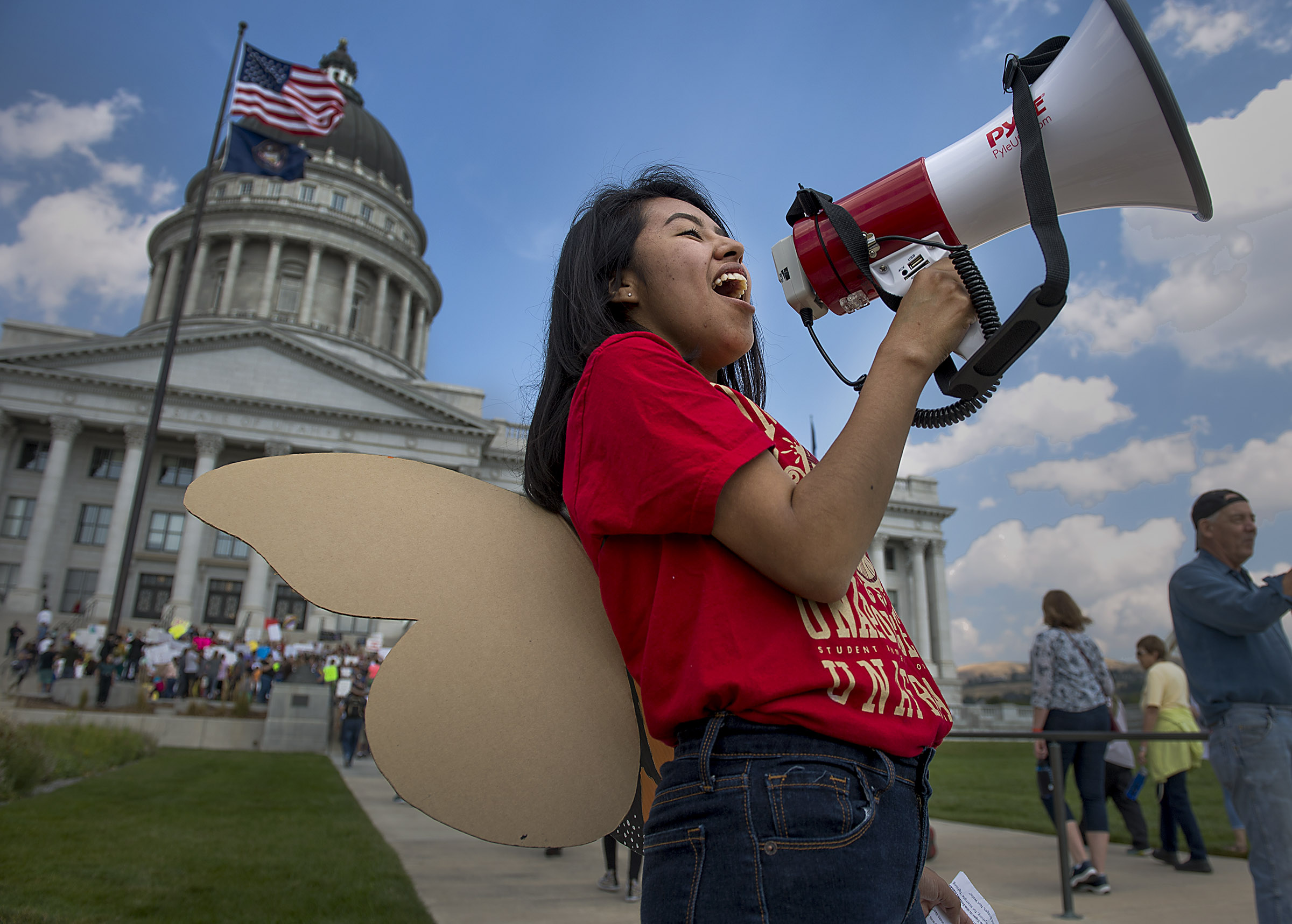Deferred Action for Childhood Arrivals (DACA)
 On June 15, 2012, the U.S. Secretary of Homeland Security announced a discretionary mandate known as Deferred Action for Childhood Arrivals (DACA).
On June 15, 2012, the U.S. Secretary of Homeland Security announced a discretionary mandate known as Deferred Action for Childhood Arrivals (DACA).
At the time, DACA allowed undocumented individuals to gain temporary lawful presence in the United States if they met certain criteria. Undocumented individuals would be eligible to obtain a work permit and gain relief from deportation.
At SLCC, DACA recipients are eligible to:
- Obtain part-time or full-time employment on campus.
- Receive SLCC employee benefits (if the recipient is working full-time or if they have been employed at SLCC for a certain amount of time).
- Apply for private scholarships offered by the institution (if they are eligible for SB 253).
Generally, undocumented students (with and without DACA) are not eligible for:
- Federal Financial Aid via the FAFSA (student loans, grants, or work-study)
NOTE: SLCC students who have DACA will still have to complete an HB 144 affidavit in order to determine their eligibility for in-state tuition.
If you have questions about DACA, please visit the United States Citizenship and Immigration Services (USCIS) website for more information.
A Short Timeline of DACA
On July 16, 2021, Federal Judge Hanen ruled that DACA is unlawful, violating the Administrative Procedure Act. This means:
- Current DACA recipients can continue to receive protection from deportation and a work permit.
- Individuals who are applying for renewal can keep renewing until further notice.
- Individuals who have been granted DACA as initial applicants are not affected by this ruling.
- Individuals who have pending initial applications (anything short of being fully granted) face an indefinite freeze of their application.
- Advanced parole applications are still being accepted for current DACA recipients.
On May 17, 2023, Federal Judge Hanen will hear oral arguments regarding the legality the DACA Final Rule on June 1, 2023. A decision will be announced after this date.
On September 13, 2023, Judge Hanen declared that Biden’s version of DACA (fortified on October 31, 2022) is unlawful.
While first-time DACA applicants are still not being accepted, renewals and advanced parole remain open.
On January 17, 2025, the U.S. Court of Appeals for the Fifth Circuit ruled that key parts of the Biden-era DACA Final Rule are unlawful under the Immigration and Nationality Act. Importantly, this ruling applies only in Texas, where initial DACA applications and work authorization may be restricted. In the other 49 states, the program remains largely intact. The decision was stayed pending appeal, so current DACA recipients nationwide (including Texas) can continue to renew their DACA and receive Employment Authorization Documents (EADs) until expiration.
In the meantime, here is what you can do:
- To learn more about what resources are available in your area, visit the Utah Immigrant Advocacy Coalition.
- Research on how you can renew if you are a current DACA recipient.
- Our Center for Health & Counseling is open to staff, faculty, and students who need support and are impacted by these court rulings.
- If you have questions about your immigration case or to determine if you can pursue a case with USCIS, schedule a consultation at one of our virtual Immigration Help Sites:
- Upcoming Dates:
- August 27
- September 24
- October 22
- Note: For the foreseeable future, our Immigration Help Sites will be offered virtually and by appointment only. Consultations are offered in 30-minute increments between 5:30 - 7:30 PM.
- Upcoming Dates:
For more information, visit the S.J. Quinney School of Law Pro Bono Initiative calendar.